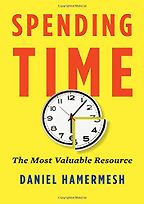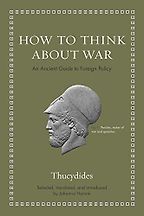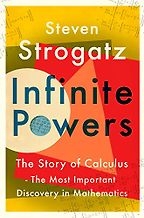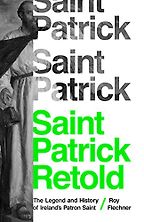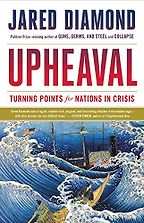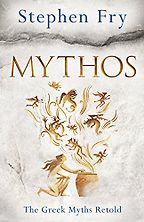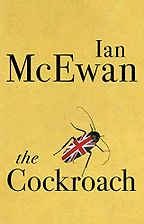Books I've reviewed: Sophie Roell
Last updated: November 06, 2024
Spending Time: The Most Valuable Resource
by Daniel Hamermesh
"Life is hectic," writes labour economist Daniel Hamermesh at the beginning of chapter 13 of Spending Time: The Most Valuable Resource. In the book, he explores why this is so, in what way it is so and what, potentially we could do about it.
How to Think about War: An Ancient Guide to Foreign Policy
by Johanna Hanink & Thucydides
How to Think about War by Johanna Hanink, a classicist at Brown University, is a translation of key speeches from Thucydides' History of the Peloponnesian War as well as an introduction and explanation of what it's is all about.
Infinite Powers: The Story of Calculus
by Steven Strogatz
"I yield freely to the sacred frenzy"—Johannes Kepler, 1619. Infinite Powers: the Story of Calculus is a popular math book, written for a general audience. In it, mathematician Steven Strogatz not only takes us through the history of calculus, from Archimedes to the present day—pointing out its extraordinary contribution to modern life along the way—but also conveys some of the excitement of doing math.
Saint Patrick Retold: The Legend and History of Ireland's Patron Saint
by Roy Flechner
Who was St Patrick? Saint Patrick Retold, by historian Roy Flechner of University College Dublin, definitively answers that question. We've spoken to the author to find out more...
Upheaval
by Jared Diamond
How do countries deal with crisis? In Upheaval the author, geographer and historian Jared Diamond examines how six countries he has lived in have dealt with crisis—and looks at the challenges facing his own country and current home, the United States.
Jared Diamond is one of our most recommended authors on Five Books, with two of his previous books recommended multiple times in our interviews with experts: Collapse: How Societies Choose to Fail or Succeed (2005) and, of course, the Pulitzer Prize-winning Guns, Germs, and Steel: The Fates of Human Societies (1997).
Mythos: A Retelling of the Myths of Ancient Greece
by Stephen Fry
Mythos by Stephen Fry is a humorous retelling of the Greek myths—if that seems possible given all the atrocities constantly being committed by the the gods, goddesses, and titans. It's a really great book for getting on top of not only the Greek myths, but also the way the names of the gods/goddesses etc. and Ancient Greek words are intertwined into the modern English language. We highly recommend the audiobook in particular, narrated by Stephen Fry himself, who is a talented and funny actor.
The Cockroach
by Ian McEwan
The Cockroach by distinguished author (and Five Books interviewee) Ian McEwan is a political satire about Brexit, the shorthand used for the decision of the United Kingdom to exit the European Union following a referendum in June, 2016. Critical response to The Cockroach in the UK has been predictable: those who support Brexit hate it and those who oppose Brexit love it.
The audiobook, read by the British comic actor Bill Nighy in his customary lugubrious tone, is very, very funny.
War and Peace
by Leo Tolstoy
🏆 War and Peace is one of our most recommended novels on Five Books
War and Peace by Leo Tolstoy is regarded by many as one of the greatest novels ever written. In our interviews, philosophers, historians and novelists have recommended it as critical reading for understanding a variety of subjects. Like many great books, it was greeted with some scepticism on publication.
“Tolstoy famously said of War and Peace that it wasn’t even a novel. In a sense, it’s a total history of that epoch in Russia in a fictional form…It’s very interesting what happens with the novel linguistically. There’s been a study of the French words in the novel, because there are a large number, and they feature particularly in the early phases of the novel. Towards the end, the novel becomes more Russian in its literary and vernacular style, in its lexicon and syntax. In a sense, the Russian language is the true character of the novel. The growing Russianness of the language is the epiphany, that moment of self-discovery, that the Russian aristocracy goes through at that time.” Read more...
Orlando Figes, Historian
